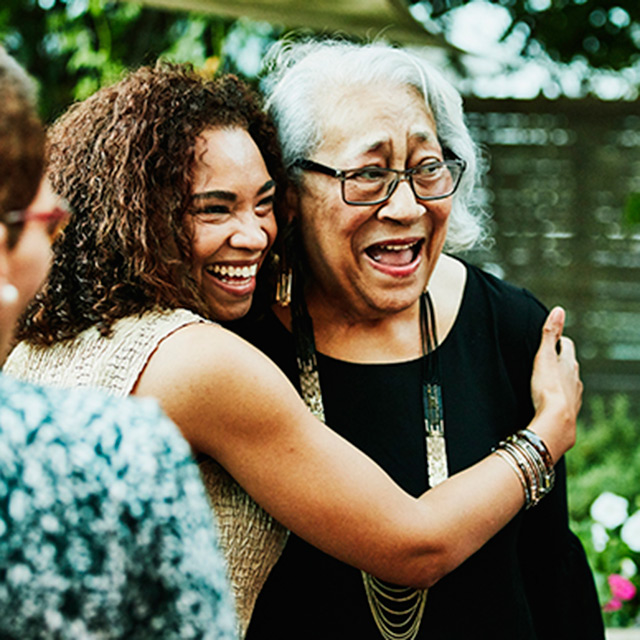Experts hear a wide range of patients’ worries.
People who have smoked for a long time may understandably worry about lung cancer. Now there’s a screening program that provides a fast, easy check for lung cancer. It can catch lung tumors when they’re still tiny enough to be treated easily, so this type of screening is literally a life-saver.
But people who are even the slightest bit worried that they might have cancer can experience a wide range of emotions. Radiologist Dr. Kim Sandler, co-director of the Vanderbilt Lung Screening Program, said that patients talk through lots of fears before getting screened. Here, Sandler describes the emotional aspect and what seems to be most often on patients’ minds. She said people express several common worries:
Will anyone make me feel guilty about smoking?
Some people coming into the lung screening program are reluctant to be screened, Sandler said, because they worry that a positive result (finding a suspicious nodule) will trigger blame.
They feel they’ve been judged by the medical profession in the past because of their smoking, she said – or by loved ones. They fear that if the screening finds lung cancer, that friends and family members are going to blame them, and say things like, ‘I asked you to quit this many years ago.’ “
“We really fight to combat that stigma,” Sandler said.
Screening is not about guilt, she said. It’s meant to catch tumors as early as possible, to make treatment as easy and successful as possible. “The majority of diagnoses we make are in the early stage. The survival ratios are so much higher for early stage than for late-stage cancer.” Some patients can undergo surgery only – no chemo, no radiation – and live many years beyond lung cancer, Sandler said.
Will the doctor pressure me to quit smoking during my lung cancer screening?
Pressure? No.
Support? Yes.
This team recognizes that not everyone is ready to quit smoking, and they don’t load people up with guilt and lectures. Someone can be screened even if they have not stopped smoking.
That said, the screening program offers tools and tactics for quitting, including counseling about cravings and triggers; and “smoking cessation” products such as the nicotine patch. This program works with hundreds of people trying to quit, because quitting rapidly lowers their risk for lung cancer.
People who quit smoking when they start annual lung screenings can almost double their six-year survival rate from lung cancer, Sandler said. Being smoke-free improves overall health and makes it easier to recover from other health problems, too, anything from a knee replacement to oral surgery to the flu.
Many patients return for their next yearly screening proudly announcing that they’ve quit smoking.
But plenty of others say they’re not ready to quit. They come back for screening a year later and can take advantage of the help when they’re ready.
I’ve already fought cancer. I don’t want to go through that again.
Because people eligible for lung cancer screening are older adults – ages 50 to 80 – many of them have already experienced cancer. Maybe they survived breast cancer; maybe they’re living with prostate cancer; maybe they’ve watched a relative deal with cancer treatment.
In conversations with patients, the providers in this program hear many of them express dread of treating cancer again. Many are retired, enjoying life and feeling healthy. They’re not sure they’d go through the time and stress of treatment again if they got another cancer diagnosis.
Sandler noted that more than 90 percent of screenings reveal no cancer, so most patients do not have to confront another cancer diagnosis. Also, the screening is meant to catch lung cancer in its earliest stage, when it is small and hasn’t spread beyond the lungs. Sandler said that some patients whose lung cancer is caught at an early stage are treated successfully with only surgery – no chemotherapy, no radiation. So treatment for early stage lung cancer may not be as frightening as some cancer survivors dread.
However, if someone is absolutely sure that they will not treat any new cancer, they are not coerced into the screening.
The team addresses these concerns with patients before screening, Sandler said. The conversation discusses possible scenarios, and the risks and benefits of getting screened, so people can make an educated decision about what is best for them.

Getting connected
Enrolling in the Vanderbilt Lung Screening Program provides annual reminders for future screenings and offers help in quitting smoking. Our radiologists are specially trained in reading lung CT scans, so they produce fewer false positive readings than lung screenings at other locations, giving you greater peace of mind. An order from a healthcare provider is needed for lung screening. Talk with your healthcare provider about whether lung screening is right for you. If you do not have a healthcare provider but would like to be screened, call 615-205-9526 for assistance.
Who should be screened for lung cancer? Read more here.




